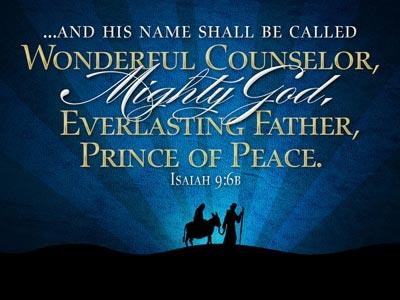-
Three Aspects Of Godly Living Series
Contributed by W Pat Cunningham on Sep 26, 2010 (message contributor)
Summary: Worship, ethics and law may not come loose from each other, or man is devalued.
Feast of St. Vincent de Paul
The Spirit of the Liturgy
27 September 2010
How many of us, faced with the loss of all our property, and even all our children, would immediately fall to the ground and worship? Fall to the ground, certainly; but worship? Job does not sound like anyone I know. But is that not the way of a little child who trusts his Father? Whatever happens, the child runs to the parent in confidence that there will be safety there, and consolation. Jesus, the child of God par excellence, became human with the understanding that his human life would end in a horrible assassination. But he went to His death in confidence that the Father would raise Him up, and not only Himself, but many, many brothers and sisters. Living according to the will of God, no matter what the inconvenience, is an indispensable part of worship. “The glory of God is the life of man, but the life of man is the vision of God,” said St. Irenaeus. “Ultimately,” the Pope says, “it is the very life of man, man himself as living righteously, that is the true worship of God.” But that life only becomes real when it “receives its form from looking toward God. Cult exists in order to communicate this vision and to give life in such a way that glory is given to God.”
Even on Sinai, there is an “interweaving” of the three aspects of godly living–worship, law and ethics. The modern world, especially since the Protestant revolution, has witnessed the necessary unraveling of law from worship. But secularization has also pulled law loose from ethics. Consider the abominable case of Roe v. Wade as an example. Law without a foundation in morality becomes injustice. When the Supreme Court removed all legal protections from the tiniest humans, the most vulnerable, the Law of the land became injustice. If morality and law are pulled loose from their “God-ward perspective,” they degrade man, because they “rob him of his highest measure and his highest capacity, deprive him of any vision of the infinite and eternal.” (19)
The idea behind the secularism that sprung from the Enlightenment was pretty bold. By getting rid of God, the philosophes thought to ennoble man. Man dependent on God was offensive to them. Man freed of God, they thought, would be free to develop in new ways that would raise man up. The problem is that no such human exists. We are all weak and dependent. “When human affairs are so ordered that there is no recognition of God, there is a belittling of man. That is why. . .worship and law cannot be completely separated from each other.” God has “a right to a response from man, to man himself, and where that right of God” is denied, “the order of law among men is dissolved, because there is no cornerstone to keep the whole structure together.”
The theophany on Sinai, and the covenant God established there, is what gave meaning to the Exodus of Israel from Egypt. Sinai was not some sort of refreshment stop on the way to the promised land. Sinai gave Israel “its interior land.” Without the interior meaning, expressed daily in worship, the exterior one–the physical land–“would be a cheerless prospect.” The “common rule for righteous living. . .is what makes the land a real gift.” Without Sinai, the territory between the Dead Sea and the Mediterranean would have been a gift of trouble. It was and is the natural invasion route between Europe, Asia and Africa. Over and over again the great empires seized the land and subjected the people to pillage and ruin. When the Hebrews lost the reality of Sinai in Palestine, when they turned to foreign gods and unjust practices, they lost their inward land, and ultimately lost it all. They had returned to Egypt even when they still lived in Palestine, so God allowed them to be dragged into slavery.
“Mere possession of your own land and state does not give you freedom; in fact, it can be the grossest kind of slavery. And when the loss of law becomes total, it ends in the loss even of the land.” Divine service, right worship, was the real objective of Exodus, whether of the Hebrew people or of us. The “foundation of existence” in the Promised Land must be “steadfast adherence to the law of God, which orders human affairs rightly. . .organizing them as realities that come from God and are meant to return to God.” (20)
We can know what this divine intent is by reading the documents of our faith–first the Scriptures and Fathers of the Church, and then the documents of Vatican II and the writings of the Pope and commissions on the Liturgy. Let’s pray that as we move toward the “reform of the reform,” we do more listening to the Church and less listening to each others’ desires.

 Sermon Central
Sermon Central



